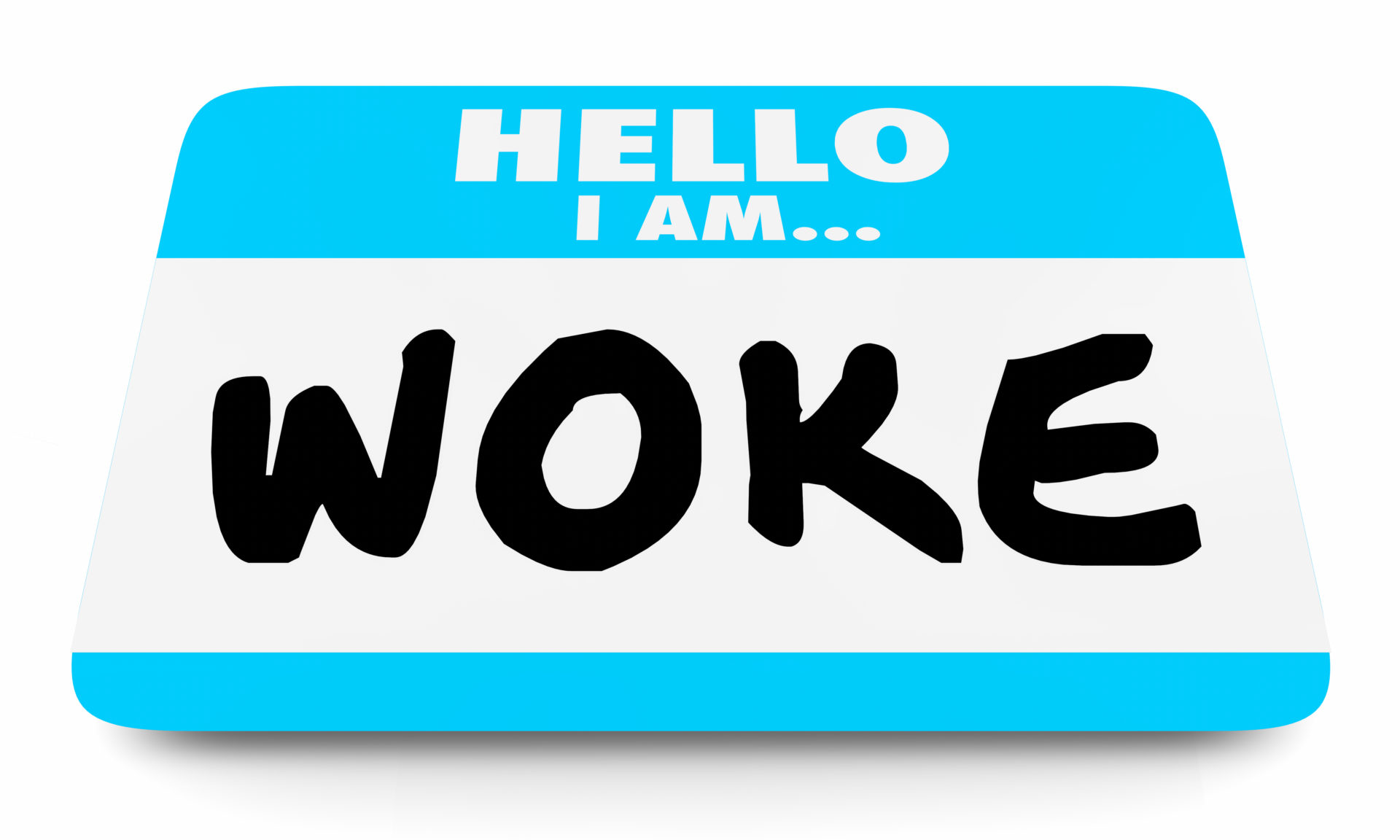The word “woke” has become ubiquitous in today’s society, popping up in conversations, news headlines, and even social media memes. But what does it actually mean? What are its origins, and how has its meaning evolved? This article explores the multifaceted nature of “woke,” examining its cultural significance and the complexities surrounding its use.

Image: www.dailyevolver.com
I first encountered the term “woke” during a heated debate on social media about racial injustice. While initially confused by its usage, I quickly realized its significance as a symbol of awareness and resistance against systems of oppression. This experience sparked my curiosity, prompting me to delve deeper into the history and evolution of the word, unraveling the layers of meaning that the term encompasses.
A Journey Through Time: Unraveling the Origins of “Woke”
“Woke” originated within the African American community, rooted in the Black consciousness movement of the 1930s and 1940s. It gained wider recognition in the civil rights era, becoming a rallying cry for Black people to stay vigilant and aware of racial injustices. This connotation of “staying awake” to racial discrimination remained central to its meaning for several decades.
The rise of intersectional feminism and other social justice movements in the late 20th and early 21st centuries further expanded the term’s reach. “Woke” began signifying awareness of various forms of social inequality, including sexism, homophobia, transphobia, and ableism. It became a call for individuals to be conscious of their privilege and to actively challenge oppressive systems.
Navigating the Labyrinth: Understanding the Current Use of “Woke”
Today’s cultural landscape presents a complex and often contentious discourse around “woke.” Its broadened meaning, encompassing a wide spectrum of social justice issues, has led to various interpretations and reactions. Discussions surrounding “woke” often revolve around debates about identity politics, political correctness, and the role of activism in society.
For some, “woke” represents a positive step towards a more just and equitable world. They view it as a call for increased sensitivity and empathy, encouraging a deeper understanding of marginalized communities and their experiences. Advocates see “woke” as a crucial tool for promoting social justice, advocating for systemic change, and dismantling oppressive structures.
However, others perceive “woke” with a sense of unease, even hostility. They argue that it leads to an overly sensitive and politically correct environment, stifling free speech and creating a culture of censorship. This perspective often centers on concerns about the perceived “cancel culture” associated with “woke” activism, where individuals are ostracized for expressing opinions deemed insensitive or offensive.
The term “woke” has become increasingly politicized, with both sides of the political spectrum employing it strategically. For some, it symbolizes a progressive stance, while for others it represents an attack on traditional values and free speech. These polarized perspectives further fuel the ongoing debate surrounding the term, making its meaning even more intricate and subject to interpretation.
Beyond the Buzzwords: Finding Common Ground
Amidst the intense debate, it is essential to recognize that “woke” is more than just a buzzword. It reflects a genuine desire for a more just and equitable society, a yearning for a world where everyone feels respected and valued. The challenge lies in navigating the complexities surrounding “woke” without succumbing to divisive rhetoric.
The key lies in fostering open and respectful dialogue. Engaging in constructive conversations, listening actively to different perspectives, and seeking common ground are crucial steps towards a more nuanced understanding of “woke” and its implications.

Image: www.celebrities-contact.com
Tips for Navigating the “Woke” Landscape
Here are some practical tips for navigating the complex terrain of “woke” discussions:
- Be mindful of your language: Choose your words carefully and consider their potential impact on others. Avoid using offensive or discriminatory language, and be sensitive to the nuances of intersectional experiences.
<li><strong>Listen attentively:</strong> Engage in active listening, paying attention to the perspectives of others, even if they differ from your own. Try to understand the reasons behind their viewpoints and approach the conversation with empathy.</li>
<li><strong>Educate yourself:</strong> Stay informed about social justice issues, systemic inequalities, and the experiences of marginalized communities. Seek out diverse perspectives and challenge your own biases through continuous learning. </li>
<li><strong>Promote understanding:</strong> Use your platform to foster dialogue and understanding, sharing information about social justice issues and promoting awareness of systemic disparities.</li> Remember, navigating “woke” discourse is a process of continuous learning and growth. By approaching conversations with openness, respect, and a willingness to learn, you can contribute to a more informed and compassionate understanding of this complex and evolving concept.
FAQ: Addressing Common Questions
Here are some frequently asked questions about “woke” and their answers:
- Q: What does it mean to be “woke”?
- A: Being “woke” typically signifies awareness of social justice issues, systemic inequalities, and the experiences of marginalized groups. It emphasizes the importance of challenging oppression and promoting equality.
<li><strong>Q: Is "woke" a positive or negative term?</strong></li>
<li><strong>A:</strong> The perception of "woke" varies widely. Some see it as a positive force for change, while others view it with suspicion, associating it with political correctness or cancel culture. </li>
<li><strong>Q: How can I be more "woke"?</strong></li>
<li><strong>A:</strong> Becoming more "woke" involves continuous learning, self-reflection, and actively challenging your own biases. Seek out diverse perspectives, engage in conversations about social justice issues, and work to dismantle systemic inequalities. </li>What Does Woke Mean In Today’S Culture
Conclusion: A Call for Continued Conversation
The meaning of “woke” remains a subject of ongoing debate and interpretation. It is a term that embodies the complexities of social justice, identity politics, and activism in today’s world. While its meaning may be contested, its underlying message – the pursuit of a more just and equitable society – remains a powerful force for change.
Are you interested in further exploring the intricacies of “woke” and its impact on contemporary culture? Share your thoughts in the comments below, and let’s continue the conversation!

:max_bytes(150000):strip_icc()/OrangeGloEverydayHardwoodFloorCleaner22oz-5a95a4dd04d1cf0037cbd59c.jpeg?w=740&resize=740,414&ssl=1)




